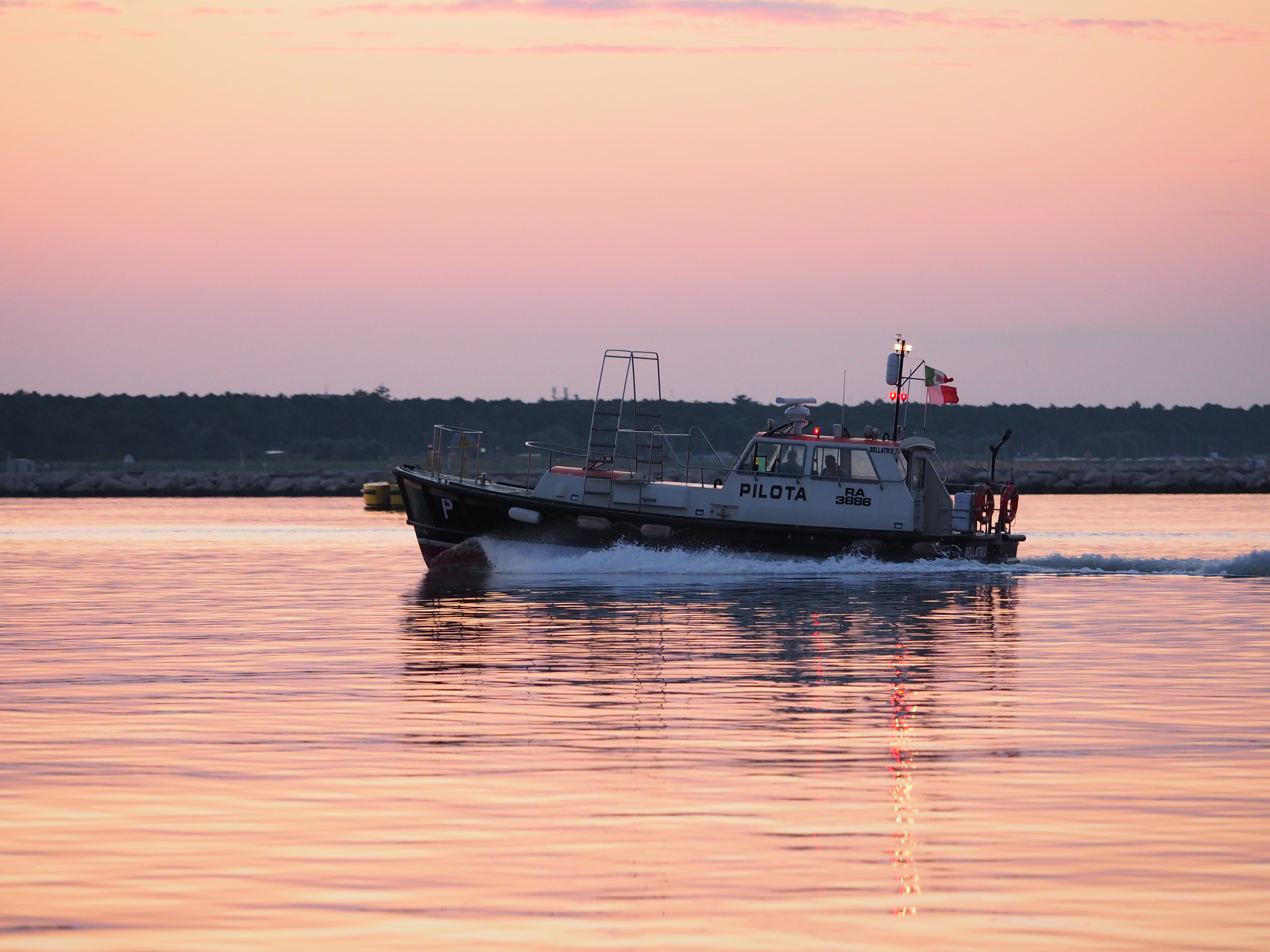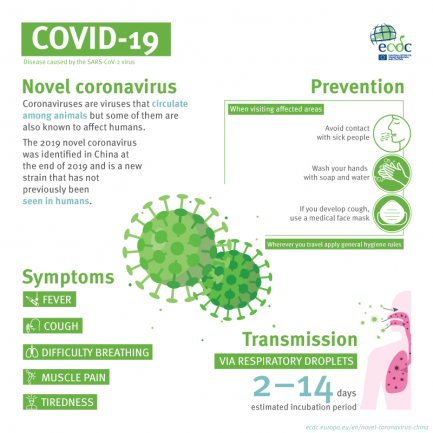Coronavirus (COVID-19)
The Coronavirus (COVID-19) pandemic is developing fast across Europe. EMPA encourages all European maritime pilots and collaborating stakeholders to co-operate and participate in precautions that are introduced, in order to avoid that the situation deteriorates unnecessarily, and in order to safeguard that the operations in Europe’s seaports can continue as unhindered as possible.
EMPA intends to update this website with new information and advice when applicable.
The most common symptoms of COVID-19 are fever, tiredness, and dry cough. Some patients may have aches and pains, nasal congestion, runny nose, sore throat or diarrhea. These symptoms are usually mild and begin gradually. Some people become infected but don't develop any symptoms and don't feel unwell. Most people (about 80%) recover from the disease without needing special treatment. Around 1 out of every 6 people who gets COVID-19 becomes seriously ill and develops difficulty breathing. Older people, and those with underlying medical problems like high blood pressure, heart problems or diabetes, are more likely to develop serious illness. People with fever, cough and difficulty breathing should call their health care provider.
The most effective ways to protect yourself and others against COVID-19 are to frequently clean your hands, cover your cough with a tissue or the bend of elbow, and maintain a distance of at least 1 meter (3 feet) from people who are coughing or sneezing.
In several countries, measures have already been taken in order to prevent the virus from spreading. A situation update on COVID-19 in the EU/EEA and the UK can be found via the ECDC website. Be sure to comply with any local restrictions on travel, movement or large gatherings. COVID-19 outbreaks can be contained and transmission stopped, as has been shown in China and some other countries. Unfortunately, new outbreaks can emerge rapidly. It's important to be aware of the situation where you are or intend to go. WHO publishes daily updates on the COVID-19 situation worldwide. On 11 March, the ECDC published Considerations relating to social distancing measures.
Stay aware of the latest information on the COVID-19 outbreak, available on the WHO website and through your national and local public health authority. Many countries around the world have seen cases of COVID-19 and several have seen outbreaks. Authorities in China and some other countries have succeeded in slowing or stopping their outbreaks. However, the situation is unpredictable so check regularly for the latest news.
Most estimates of the incubation period for COVID-19 range from 1-14 days, most commonly around five days. These estimates will be updated as more data becomes available.
The WHO prepared Operational considerations for managing COVID-19 cases and outbreaks on board ships to be used in conjunction with the published WHO Handbook for management of public health events on board ships. The European Commission launched a Coronavirus response website. An ad hoc working group of experts from the "EU Healthy Gateways joint action" consortium published advice for ship operators for preparedness and response to the COVID-19 outbreak.
The WHO and IMO have issued a joint statement to call upon governments to respect the requirements of “free pratique” for ships under the International Health Regulations. The statement reiterates the principles of proper care for all travelers and avoiding unnecessary restrictions or delays on port entry for ships and crew.
EMPA advises all European Pilots to follow the development of this outbreak closely and to adhere to recommendations issued by national and local health authorities.
For further information, visit the websites of WHO, ECDC, the French Ministry of Ecology and the German federal agency Robert Koch Institute. The French Federation of Maritime Pilots (FFPM) sent out Practical recommendations for application on board vessels and How to deal with a suspect case infection on board a ship to all pilot stations in France and in the overseas territories. Furthermore, the Australian Government Department of Health published an information sheet for maritime pilots regarding COVID-19. The European Commission created a list of transport measures implemented or announced by Member States.
It is not certain how long the virus that causes COVID-19 survives on surfaces, but it seems to behave like other coronaviruses. Studies suggest that coronaviruses may persist on surfaces for a few hours or up to several days. This may vary under different conditions (eg type of surface, temperature or humidity of the environment). If you think a surface may be infected, clean it with simple disinfectant to kill the virus and protect yourself and others. Wash your hands with soap and water or clean them with an alcohol-based hand rub. Avoid touching your eyes, mouth, or nose.
In any case, if you have fever, cough and difficulty breathing seek medical care early to reduce the risk of developing a more severe infection and be sure to share your recent travel history with your health care provider.

